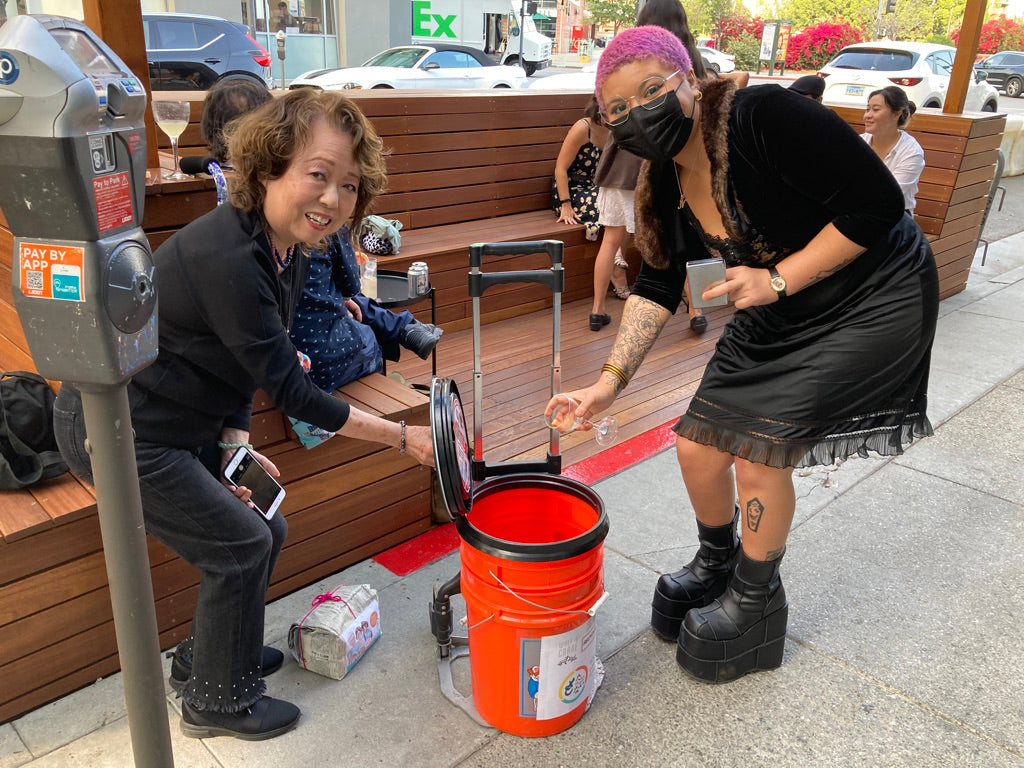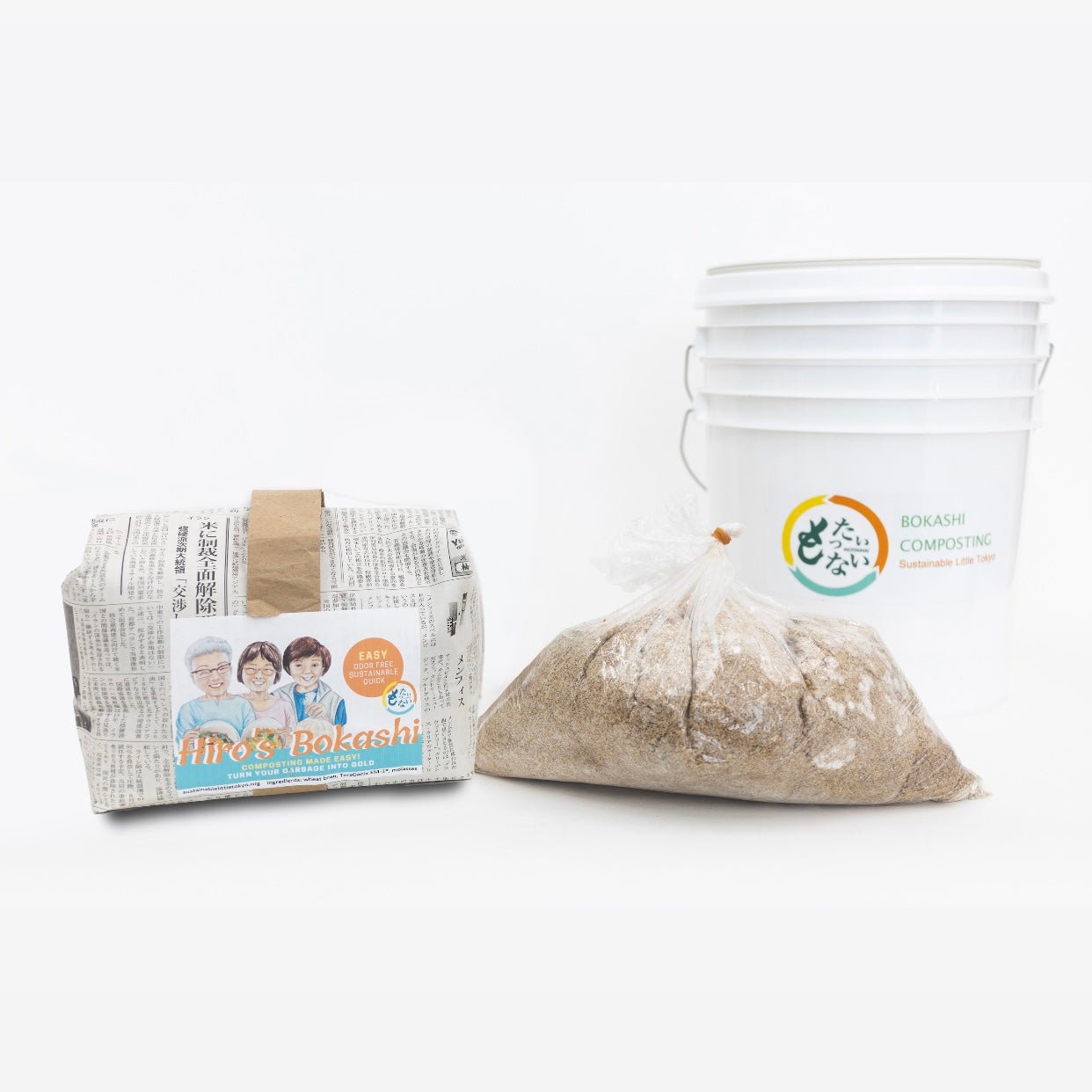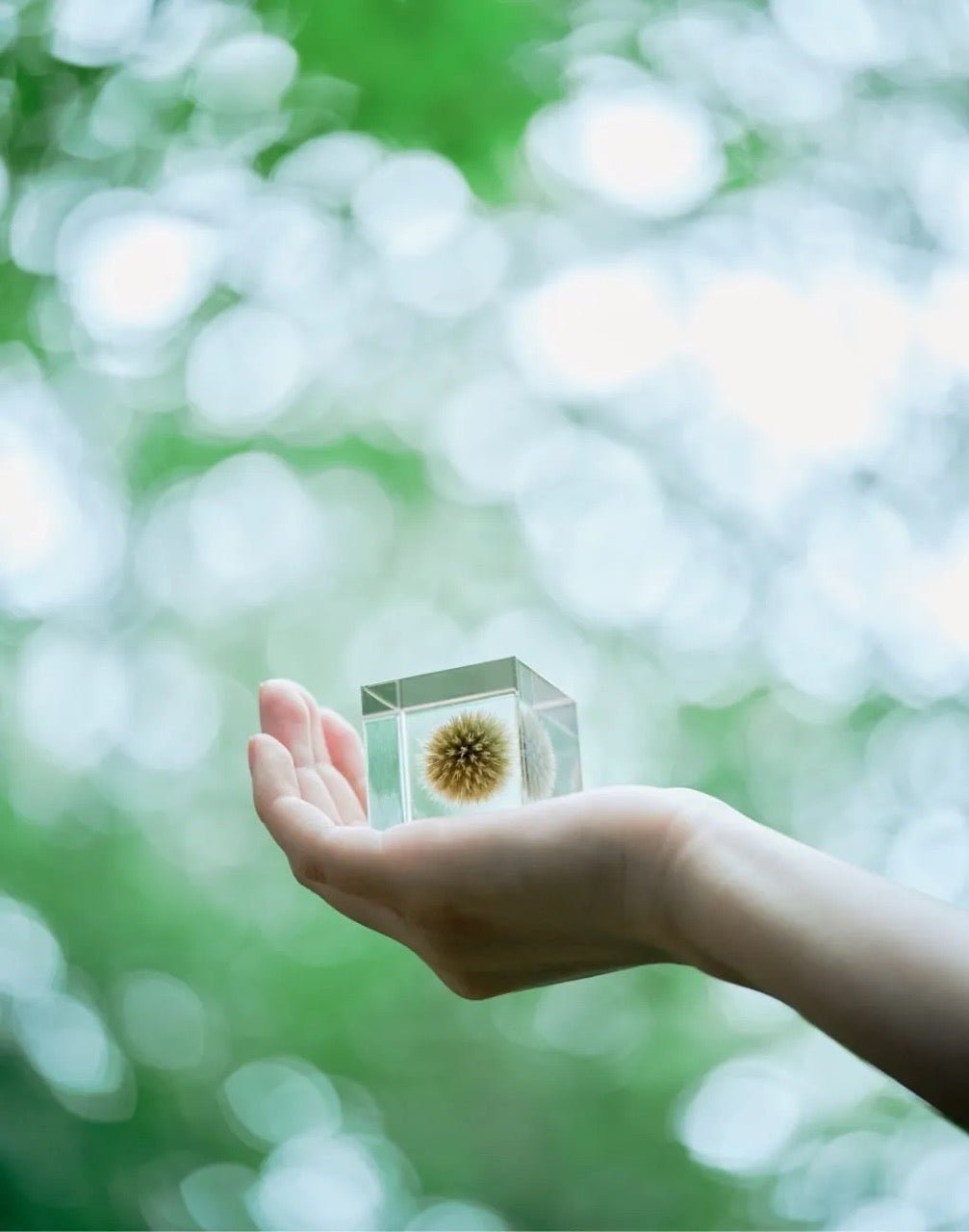Sustainable Little Tokyo’s Cycle of Food Coordinator, Amy Honjiyo, starts her workshops with a single Japanese word: もったいない (mottainai). A Japanese idiom referring to 'waste', or more accurately, 'regret for wasting without deriving its full value', Amy will explain that mottainai is the perfect word to describe the re-use, recycle, reduce model we're all familiar with–with one key word added: respect. "It's a concept of living with respect that begins with respecting yourself." Extending that respect to our surrounding keeps us from wasting.
Bokashi is a method of composting that originated in Okinawa, but has successfully reached all corners of the world. A unique composting method that uses powerful microbes to ferment organic waste, creating a highly nutritious end product that enriches our soil when returned to the earth.

Tortoise is honored to welcome Amy Honjiyo, who will be assisted by zero-waste advocate Andie Kimura, for a special workshop featuring the Okinawan tradition of Bokashi composting. Our single day workshop is limited to 15 participants, and each participant will go home with their own collection bucket as well as two Bokashi bran mixtures to start them on their composting journey. Please join us next month and sign up for this fun workshop here!
(Bokashi workshop participants)
ET: What is the Bokashi method and how did Sustainable Little Tokyo begin teaching Bokashi workshops to the public?
AH: Bokashi is the anaerobic process of using a special additive to ferment kitchen waste into a healthy, nutrient rich soil. It's a method that uses a mixture of micro organisms that combat food rotting odors, increases the speed of decomposition, and supports the growth of healthy plants and trees. Five years ago the City of Los Angeles began offering incentive grants to organizations willing to educate their communities on the importance of combating food waste. Sustainable Little Tokyo along with Zenshuji Temple submitted a grant with the idea of educating the community on the Bokashi method of composting. We were one of maybe six or seven locations within the city that received this grant. The grant ran for 5 months, and there was so much interest from the community that Sustainable Little Tokyo decided to continue with this project even after the grant expired. Since then I have taught a workshop every other month on how to recycle your food waste using the Bokashi method and people continue to sign up five years later.

(Preschoolers mixing ingredients for Bokashi)
ET: Your workshop is hands on because you're teaching folks how to make their own Bokashi mixture and then how to complete the cycle by bringing their waste back to the soil. Can you explain that some more?
AH: You put all your food into a bucket and layer in the Bokashi. Place a lid on top to seal. You let it ferment and rest for two weeks. Then you go ahead and bury the contents in the ground. Wait two more weeks and you can plant on top of that. After you bury it for four weeks, it will be very hard to dig up anything that you can identify as your food waste. You hear the word decompose, but the key difference with Bokashi is the process of fermenting. Picture when you have pickles. You can leave a jar of pickles in your refrigerator and they'll look like pickles for a long time. So fermenting is different than decomposing. It's once you put your food into the ground, with the air and soil, that it begins to break down. But until that time, people will look in their bucket two weeks after they've sealed it and say, it looks the same. Well, that's good! Because it means your waste is fermenting, not rotting. That's why the smell of rot is not there, but more like yeast or vinegar.
(Preschoolers mixing Bokashi bran!)
ET: Composting can feel intimidating to folks. How does it feel to make this kind of lifestyle change? Is there a learning curve?
AH: When I present a workshop, anybody's effort at reducing food waste is a good idea. I just have to tell you, for me this is the only method that works because it's so easy. I could fit it into what I was already doing without too much behavior change, so that's what I advocate for: easy. There's still you know, times where maybe I don't want to open up the lid of my collection bucket and put more food into it. But belonging to a club or running these workshops, it puts you into a good circle of people who encourage and reinforce this behavior. This is the direction we need to move in. And I'm surrounded by people who are coming up with new ideas or ways they can reduce their food waste and it makes things fun.
(Bokashi bag making session!)
ET: Recently our laws have nudged us in the right direction, and now we're required to separate our organic waste into collection buckets or green bins. Bokashi is just one method of composting that deals with the food waste problem. What makes this method different from say our green bins?
AH: Anybody who collects their own food waste, and puts it back into their own soil or community garden will begin to see more clearly the whole 'food cycle'. Advocating for neighborhood gardens over having trucks driving food in from exotic places, it's about preserving the environment you live in and returning what you eat back into the soil. I think the bokashi method helps teach that. When you put your garbage in a trash can or give your food waste to your local trash hauler, the food cycle still feels a bit divorced and separated. It's more convenient, and you hope your trash haulers are putting our waste somewhere of value, and not just making some big mono crop somewhere, but I think the Bokashi method and backyard recycling gives you an entirely different appreciation of the food cycle and brings it home.
 (Collecting food waste in Little Tokyo)
(Collecting food waste in Little Tokyo)
ET: Do you have any success stories that stand out to you of people trying Bokashi and loving it? Can you remember your initial feelings when you first started composting five years ago?
AH: On a kind of a humble note, I thought I'd run out of people interested in Bokashi, but I haven't. I think everyone is on a journey to improve or sustain their world so even if you kind of fall back, or forget to put your bucket in the garage for a while, those things happen. It's just that you continue to revisit it, or maybe revisit a different method of sustaining the world. I wasn't composting before five years ago. I remember putting together my two gallon bucket and thinking, I'm never going to fill up a two gallon bucket of food waste. Embarrassingly I found out how frequently I had leftovers in my refrigerator that I didn't eat, and how often I had to throw away food into the bucket. So it was a very good learning lesson and visual feedback of the waste that I quickly collected all the time. Once you get that feedback several times, you realize when going to the store that you might think twice about the amount of food you get. I have grand plans for all these things I want to make, but maybe you know, I shouldn't.
 (Mixing Bokashi at JACCC)
(Mixing Bokashi at JACCC)
ET: There's a lot of great restaurants in the Little Tokyo area. Can Bokashi work on a larger scale? Could a restaurant adopt these methods?
AH: That's kind of always been my goal and dream. But I'm always trying to incrementally look at this because restaurants can generate a lot of food waste, which means you need a lot of space to process. At the moment we receive the coffee grounds and tea from Cafe Dulce in Little Tokyo. Their owner is very much in support of sustainable activities in Little Tokyo. We had another restaurant, T.O.T. Restaurant, deliver their food waste to our compost bin everyday for a month. So right now, I am involved in probably three different businesses in their food waste collection and logistically figuring out how to collect it. One of the biggest first challenges when dealing with small restaurants is there's hardly space for the people in the back house to move let alone have a separate bucket to collect food waste. Getting their food waste every day is kind of a big deal. But we collected over 300 pounds that month with T.O.T. Restaurant and their staff was willing to collect everyday. And now we know, we can handle that much garbage. It's doable. It's progress.
---
Thank you Amy for spreading awareness of Bokashi around Los Angeles and for nudging us in the right direction. For those interested in Bokashi and Sustainable Little Tokyo, we encourage you to sign up for their emailing list to learn about future workshops, events, meetings and more!
(Amy Honjiyo and her favorite character, Oscar the Grouch - who loves trash)







